Philip K. Dick is a master of dystopian fiction storytelling, and his stories have been adapted into some extremely popular movies over the years. Dick began his career as an author in 1951, and over his career, he wrote 45 novels and around 121 short stories, most of which appeared in popular sci-fi magazines. He loved to tell stories about alternate realities, authoritarian governments, and conspiracy theories that change the course of history. Along the way, he has had several stories turned into movies and adapted for TV. Some of his popular work was adapted in the anthology series Philip K. Dick’s Electric Dreams and the Prime Video sci-fi series The Man in the High Castle.
Videos by ComicBook.com
There have been 12 movies based on the novels and short stories Philip K. Dick wrote, with them standing among some of the best sci-fi movies ever made.
12) Confessions D’un Barjo (1992)
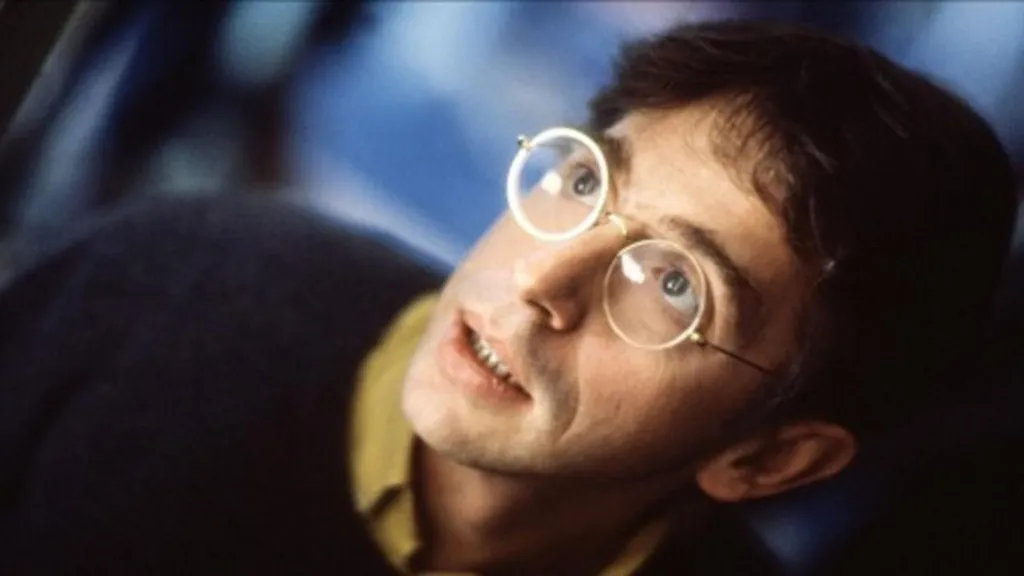
Released in 1992, Confessions D’un Barjo is based on the 1975 Philip K. Dick novel, Confessions of a Crap Artist, which he originally wrote in 1959 before publishing it years later. Unlike the rest of Dick’s published books, this didn’t include any sci-fi elements. It follows a conspiracy theorist named Jack who moves in with his sister in California in the 1950s and witnesses her toxic marriage.
This film adaptation is a French film that follows the same basic storyline as the novel. The movie has very few reviews, no Rotten Tomatoes score, and a 5.6/10 on IMDb. A low-budget Dick adaptation, it is worth watching for competitors, but it is the least notable of all the movies based on his work.
11) Imposter (2001)
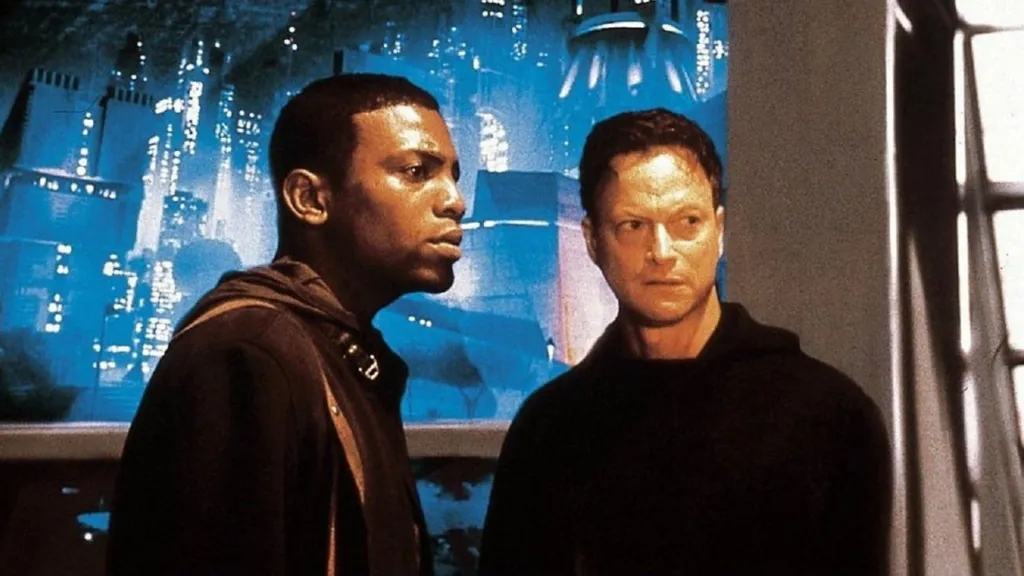
Imposter is a Gary Fleder (Runaway Jury, Kiss the Girls) movie based on the short story of the same name by Philip K. Dick. The story was originally published in Astounding SF magazine in 1953 and tells the story of a team trying to create a weapon to fight invading aliens, only to have one member of the team being accused of being an android imposter sent in to sabotage the effort.
The movie itself stars Gary Sinise as Spencer Olham, the man accused of being an android imposter, while Madeleine Stowe plays his wife. Vincent D’Onofrio, Mekhi Phifer, and Tony Shalhoub fill out the cast, but Imposter ends up as a low-budget action movie that never reaches the level of Dick’s short story.
10) Radio Free Albemuth (2010)
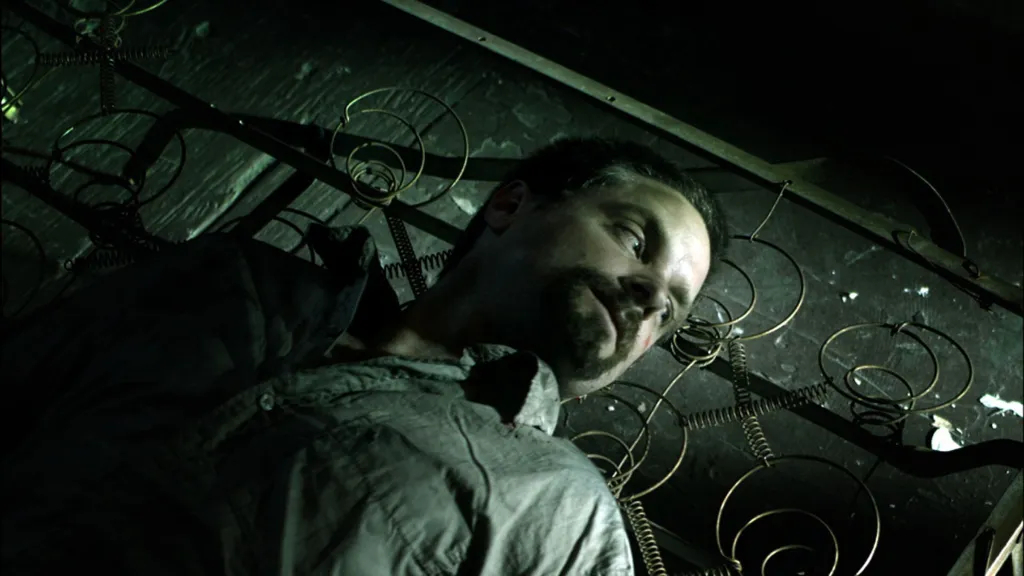
Released in 2010, Radio Free Albemuth is based on the novel by Philip K. Dick that was published a few years after his death. It is a dystopian novel that he wrote following some alleged paranormal experiences Dick claims to have experienced in the mid-1970s. This is an alternate history novel with the President of the United States named Ferris F. Freeman (FFF = 666), who uses his powers to wipe out civil liberties and human rights through the use of conspiracy theories.
The movie is an interesting story, with Jonathan Scarfe starring as Nick, a record store clerk who has been having disturbing visions and recounts them to his wife and his best friend, author Philip K. Dick (Shea Wingham). Radio Free Albemuth presents itself as a sort of fictional semiautobiography of Dick, but reviews were below average, and it ended up only getting a limited release and was quickly forgotten.
9) Screamers (1995)

Screamers was a sci-fi movie released in 1995 based on the Philip K. Dick short story called Second Variety. The original story, published in Space Science Fiction magazine in 1953 with illustrations by Alex Ebel, was set in a world where a war between the Soviet Union and the United Nations had destroyed most of the planet. Meanwhile, self-replicating robots built to attack the Soviet agents have gained sentience and are now plotting against both sides.
The movie had a script by Dan O’Bannon (Alien) and focused on Dick’s infatuation with a world destroyed by nuclear warfare and machines turning on their creators. Peter Weller (RoboCop) leads the cast in a story that moves the action off Earth and onto another planet in the distant future, with the warring factions being two mining companies, and the robots called Screamers that are threatening mass extinction. While a low-budget affair, it still has great action and a solid story, one that shares Blade Runner’s themes on what it means to be human. A sequel was released 14 years later called Screamers: The Hunting.
8) Next (2007)
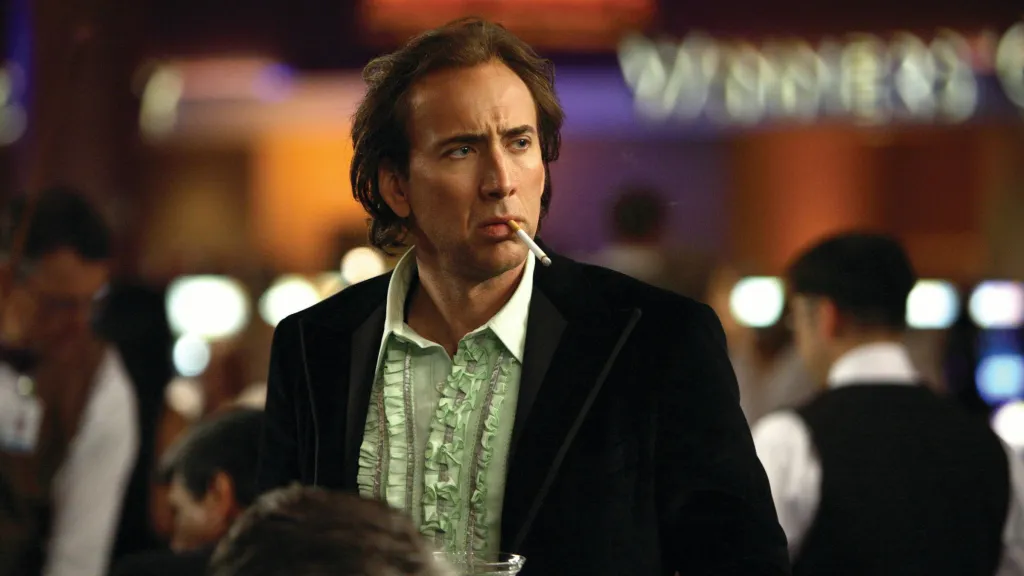
Next is where we start getting into more known Philip K. Dick adaptations, this one starring Nicolas Cage and directed by Lee Tamahori (Die Another Day). Next is based on the Dick short story The Golden Man, which was published in 1954 in the magazine If. The story is set in a post-apocalyptic future where mutants exist, but humanity hunts them down and kills them. However, when they find a mutant who can see into the future, allowing him to see all possible outcomes of any situation, he turns the tables on his captors.
The movie changes the story drastically, though. Next stars Nicolas Cage as Cris Johnson, a man who can see two minutes into the future, who uses this mostly to win money gambling. However, when an FBI agent figures out his abilities, he asks for his help in stopping a terrorist attack. There is another connection with the short story, as Cris can see all the outcomes of events, but mostly, this is just a story influenced by Dick’s story. The film has excellent action and a fun Cage performance, but it remains one of the most disappointing Dick adaptations because of how it changes his story.
7) Paycheck (2003)
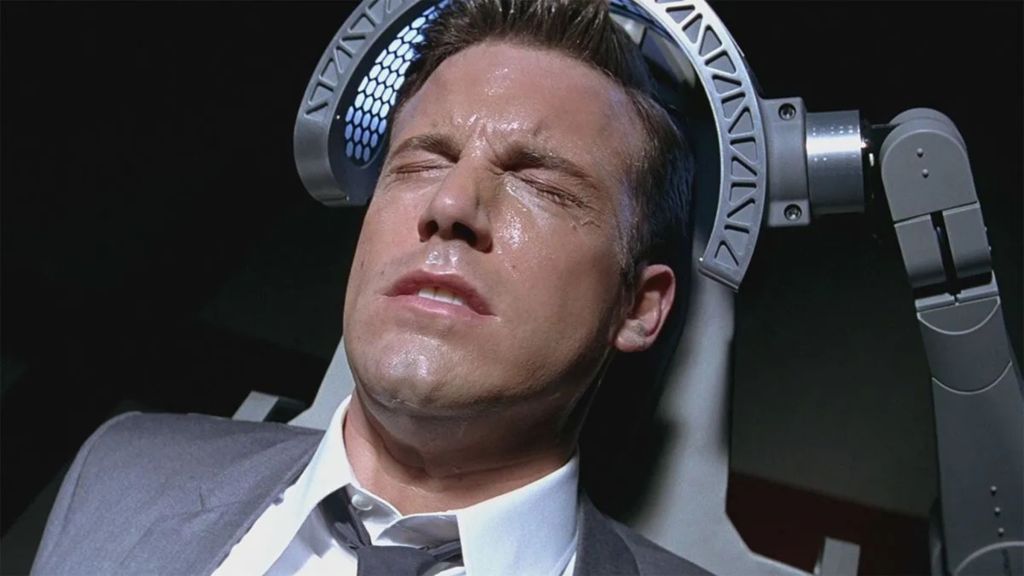
Paycheck is an interesting Philip K. Dick movie because it has one of the best action directors of all time behind the camera, John Woo. However, like many of Woo’s American productions, it fails to reach the level of brilliance of his Asian action films. The movie is based on the 1953 Dick novella from the magazine Imagination. The story follows a man who agrees to work for a company with the agreement that he will have his mind wiped when he finishes for a large payday. When he finishes, he finds he chose not to accept money and received trinkets, and then finds the United States is now under an authoritarian government, and these trinkets are the only things that will save him.
The movie stars Ben Affleck as a man who had his memory erased and finds himself on the run from the FBI and a billionaire CEO with no idea what is going on. The main change is that the authoritarian government is no longer in play, and now it is just a corrupt company CEO who is building a device that could one day cause a nuclear war. It keeps some of the themes from the Dick story, but plays it more for action without much subtlety.
6) Total Recall (2012)
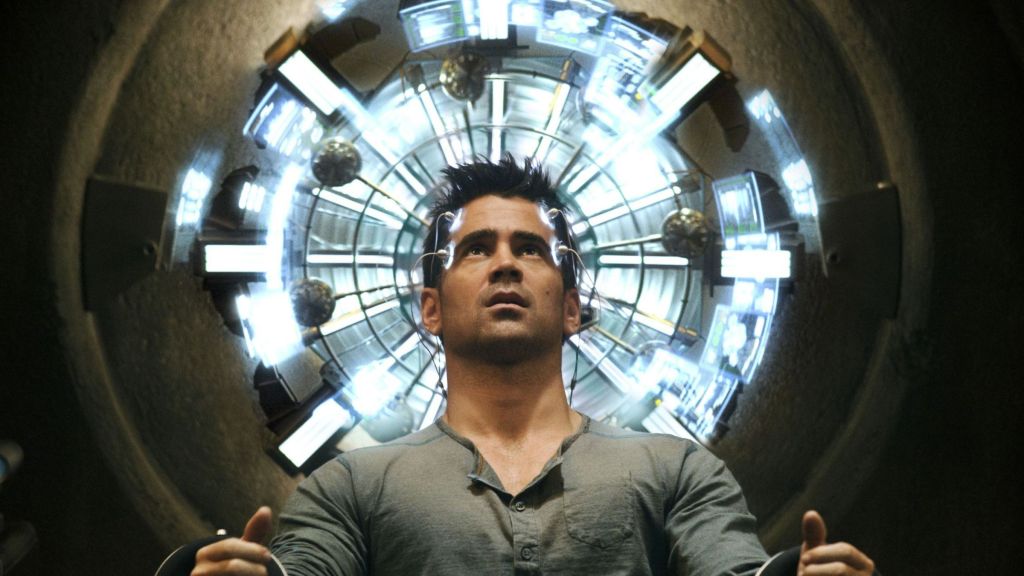
In 2012, the only remake of any Philip K. Dick adaptation was released. Len Wiseman (Underworld) directed a remake of the classic sci-fi movie Total Recall, based on the Philip K. Dick short story We Can Remember It for You Wholesale. Dick published the story in 1966 in The Magazine of Fantasy & Science Fiction, a story about a man who gets a chance to have memory implants to allow him to believe he once traveled to Mars. However, these memories indicate he was a secret agent who had really been to Mars in the past.
This second version of Total Recall stars Colin Farrell as Douglas Quaid, a man living on an Earth devastated by chemical warfare, where the only survivors are on the British Isles and in Australia. Quaid has been having dreams that he used to be a secret agent, and he decides to do the memory implants about being a secret agent. This leads to him finding that people are trying to kill him, and he can’t tell what is real and what is his memory implants. The movie received mostly negative reviews, although its action sequences were praised as its saving grace.
5) The Adjustment Bureau (2011)

The Adjustment Bureau is a movie that feels more like a Philip K. Dick story than most of his adaptations. Based on his 1954 short story called Adjustment Team, published in Orbit Science Fiction, the story follows a man who finds himself pursued by people who claim the man has to keep their existence to himself and do as he is told, or he will be eliminated to prevent a worldwide disaster from occurring.
The story is slight, but a fascinating look at the idea that there are people behind the curtains pulling all the strings. It is a discussion of the absence of free will and the idea that fate will always reign supreme. The movie, starring Matt Damon as David, the man on the run, and Anthony Mackie as Harold, the Adjustment Bureau member sent to “adjust” his actions, goes a little deeper. While Dick’s story was just a small look at the idea, this movie fleshes it out and allows the characters to deal with the concept of fate versus free will. The Adjustment Bureau received positive reviews and was a smart thriller.
4) Total Recall (1990)
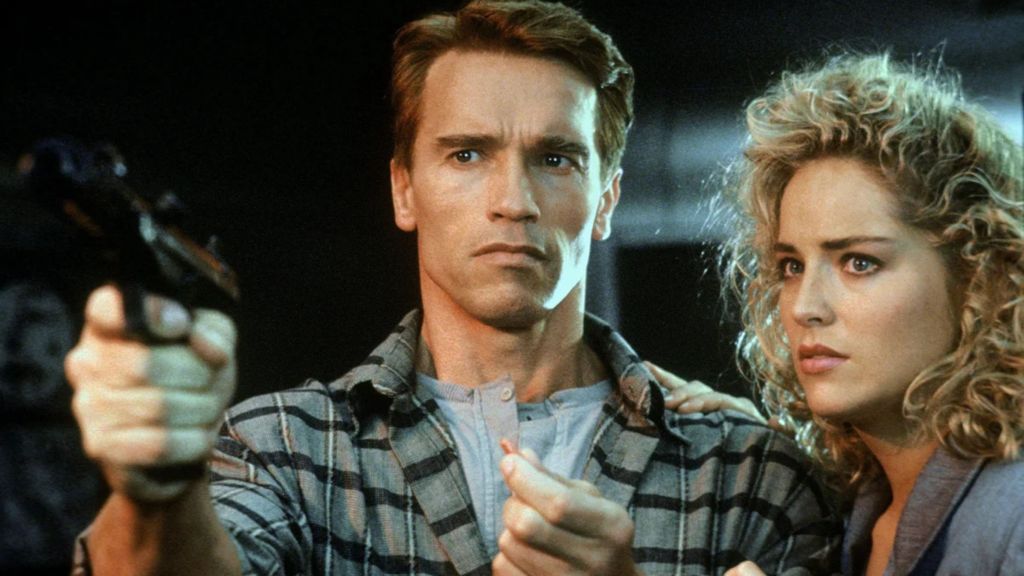
The original Total Recall feels dated in many ways, but it is still the better version of the Philip K. Dick story. While the remake took the action and put it in a post-apocalyptic world with some big sci-fi ideas, this original version kept Dick’s original idea of a man who just wants to visit Mars in his memory implants. However, they keep the main plot of him having people try to kill him because they believe he is a secret agent.
The original version is, above all else, an Arnold Schwarzenegger film, with him delivering his patented one-liners and tossing around bad guys. However, there are also some great moments once he gets to Mars, a deliciously evil villain in Sharon Stone’s role, and some truly inventive sci-fi action. Director Paul Verhoeven was also smart enough to leave things open-ended on whether it was a dream or real. Total Recall was a huge success and helped solidify Schwarzenegger as a box-office star.
3) A Scanner Darkly (2006)

In 2006, Richard Linklater adapted a Philip K. Dick story with a film using groundbreaking animation techniques. A Scanner Darkly, adapted from the 1977 Philip K. Dick novel, follows an undercover police agent who becomes addicted to the same drugs he was assigned to help bring an end to. The movie was a look at the drug culture, both recreational and abusive, and it goes deep into this subculture.
Linklater used interpolated rotoscoping to make his movie, which means he shot the cast and then animated over the actual footage. Keanu Reeves, Robert Downey Jr., Woody Harrelson, and Winona Ryder led the cast. This movie was incredibly faithful to the Dick novel, and the rotoscoping of the animation also plays into the idea of the new world this undercover officer finds himself in. A box office failure, this deserves a lot more attention.
2) Minority Report (2002)
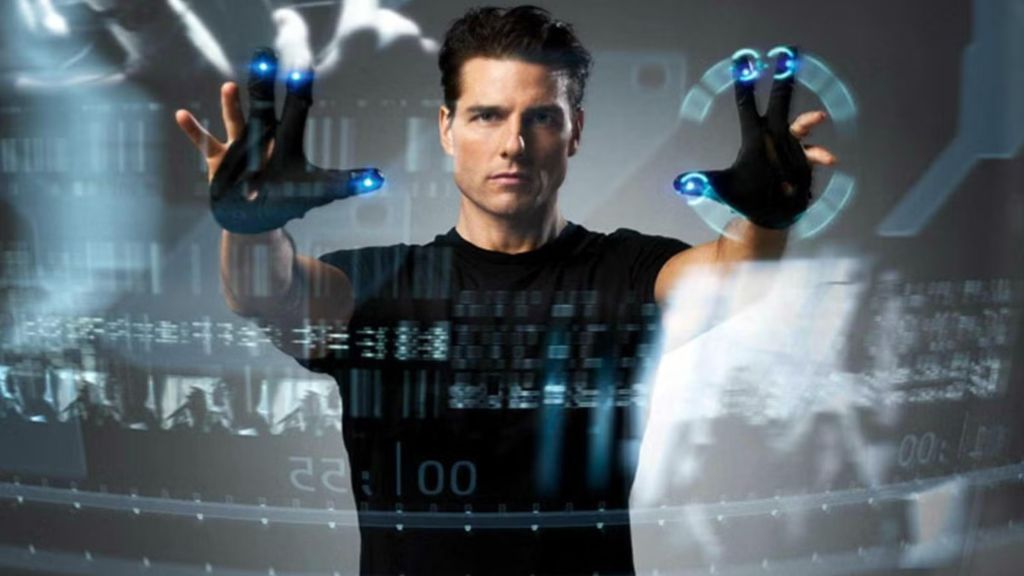
Minority Report might be the most successful Philip K. Dick adaptation thanks to its director, Steven Spielberg, and leading star, Tom Cruise. Based on the 1956 novella The Minority Report, the story features three mutants who foresee all crime before it occurs, and this allows the police to arrest suspects before they actually commit a crime. However, when one of the officers learns he is predicted to murder someone, he suspects a conspiracy.
Like many of Dick’s stories, this is a battle between free will and fate, and also deals with the authoritarianism of governments stripping away human rights. However, the movie changes the ending and the entire theme of the story. In the novel, Anderton commits the murder to protect Precrime from being shut down, since he realizes it is still the best system. In the movie, he destroys the system to help release prisoners who are imprisoned without ever committing crimes. Despite changing the meaning of the story, Minority Report was still a massive success, positively reviewed, and a box office triumph.
1) Blade Runner (1982)
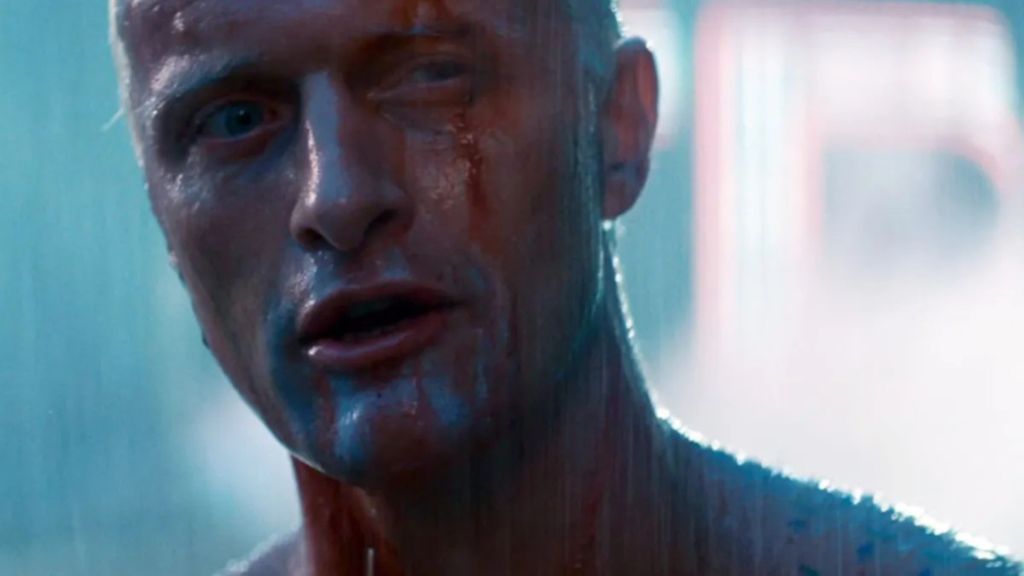
The best movie ever made based on a Philip K. Dick story is also considered one of the best sci-fi movies in the history of cinema. Blade Runner is based on the 1968 novel, Do Androids Dream of Electric Sheep? The novel itself is set in a post-apocalyptic world where Earth’s life was decimated after a nuclear war. The story follows a bounty hunter who retires escaped androids, and a secondary plot follows a man who helps the fugitive androids.
What is most impressive about this film is that it takes the form of a film noir, which plays perfectly since Dick wrote his story in the form of a hardboiled detective novel. There are also some thematic differences, including Rick being married in the book and the movie’s version of Roy Batty being absent from the written word. However, both discuss what it means to be alive (human or animal), and this might be the best Philip K. Dick adaptation to approach those specific themes, which played into much of his career’s work. In 1993, the Library of Congress added Blade Runner to the National Film Registry.
What do you think? Leave a comment below and join the conversation now in the ComicBook Forum!









